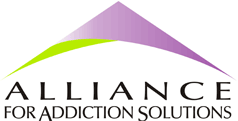Improving Relapse Rates With a Functional Medicine Approach to Addiction Treatment
- Christina Veselak, LMFT, CN
- Aug 5, 2020
- 3 min read

Freedom, empowerment and equality are becoming rallying cries across the country, while not always in constructive ways!!! We are being confronted by some people who are standing up for the need for positive change and societal transformation, and other people who are holding tightly to ideals of individual freedoms, and resistance to change.
Regardless of where you stand in relation to the bigger social and political issues, the conflict also reflects long standing divisions in the areas of substance use disorder & mental health treatment and recovery. Our fields have been characterized by socio-economic-racial inequalities, as reflected in the disparities between high-end private pay programs vs programs dependent upon insurance coverage (generally only available to those with access to jobs, or a family member with a job), vs publicly funded programs vs prison programs vs self-help programs and on-line recovery communities. Access to any treatment is too often blocked by insurmountable barriers.
However, one thing most programs have in common, is a chronically high relapse rate. They all also tend to focus on the psycho-social and spiritual aspects of treatment and recovery, and other than medication, to ignore the brain and what it needs for optimal functioning. This, I believe, is one factor that has led to these high relapse rate, across programs.
Unfortunately, our fields have also been characterized by a fundamental philosophical divide between those who tightly hold onto traditional ways of doing treatment and recovery and are wary of change, and those who feel impotent in the face of the high relapse rate seen in graduates from all of these programs, and are hungry for something different. Many providers, as well as clients, patients and insurance companies, are frustrated, disillusioned and often angered by what is often seen as personal failure, no matter whether they adhere to a more medical model, a self-help model or some combination of the two. This is true in the mental health field, as well as in the addiction treatment field.
Many of us are ready for change. We don’t want to simply accept that these are chronic illnesses, characterized by chronic relapse. We want and need a paradigm shift. But to what? In December, I was at a training featuring the Medical Director of the Hazelton Foundation, on why and how Hazelton moved to using Medication Assisted therapy (MAT) for their clients with opiate use disorders. They were very clear that they put substance use disorders into the same category as type 2 diabetes, cancer and heart disease diseases with a high relapse rate and often ineffective medical treatment. They accepted this as normal and inevitable.
However, many of us don’t accept chronic relapse as normal and inevitable, either for medical illnesses, or addictive disorders. We believe that these disorders have a high relapse rate in this country, but not in others, because the true nutritional needs of the body and brain are being ignored. This is where Functional Medicine comes in, as offering a new paradigm.
Functional Medicine believes that most, if not all illnesses are impacted by a variety of variables – emotional, social, spiritual, lifestyle, AND nutritional. The body and brain REQUIRE the right nutrients in the right amounts to function optimally. When these nutrients aren’t sufficiently available, either because of poor diet, or poor digestion, dis-ease occurs. In-depth research has also discovered that the health of the gut and the microbiome impacts every aspect of the body, including the brain, mood and behavior. And health or disease in one part of the body can create health or disease in all the others. Thus, a truly HOLISTIC approach to treatment and recovery, not only of and from addictive disorders but also of and from physical illness, includes nutrient support and biochemical balancing through a clean, high protein diet and targeted supplementation designed to support the optimal health of the brain and body, along with attention to emotional, spiritual, social and lifestyle factors. This paradigm shift empowers both client and provider through an expanded toolbox, that can be adapted to a wide variety of treatment milieus, cultural contexts, and socio-economic status.
If you are longing for change in the treatment world, and would like to know more about this life-saving paradigm shift, you can join the Alliance for Addiction Solutions for more exclusive training, or to sign up for one of our practice-enhancing trainings at addictionnutritionacademy.com and juliarosscures.com/training.





























